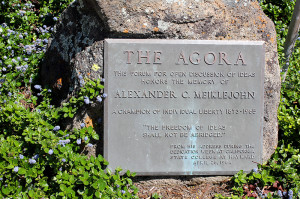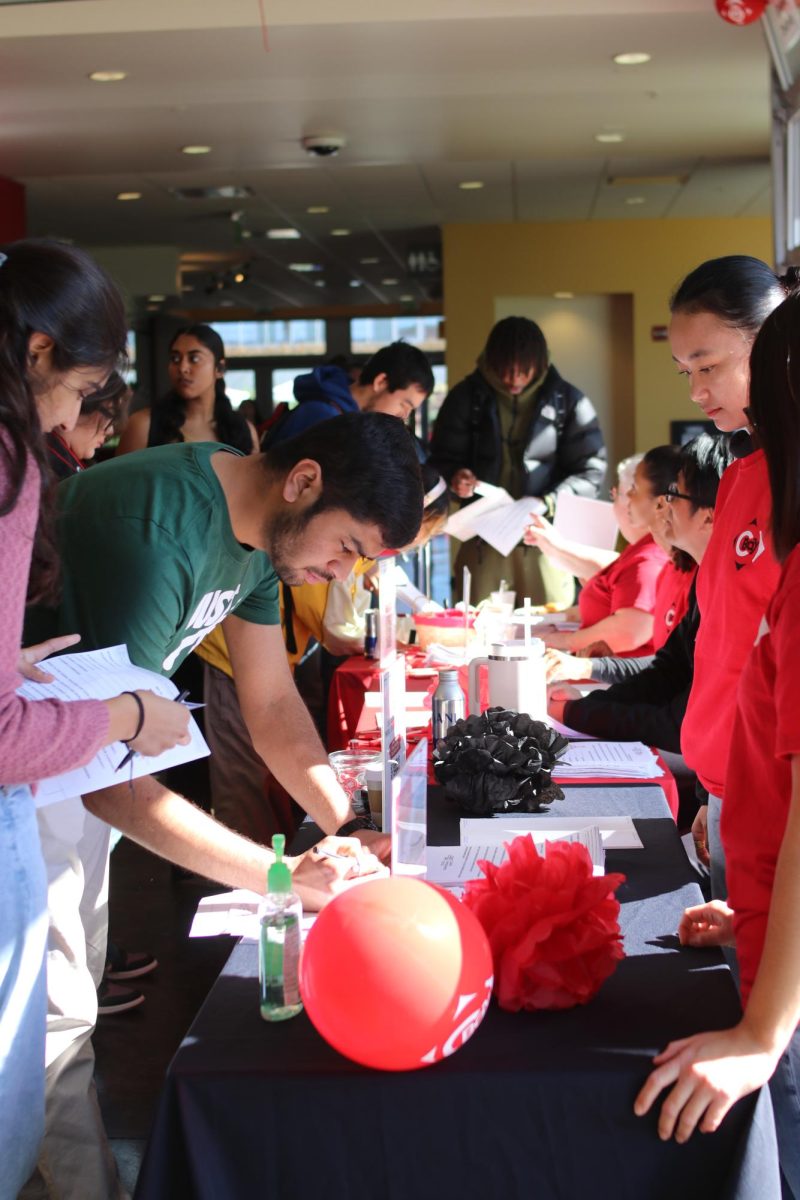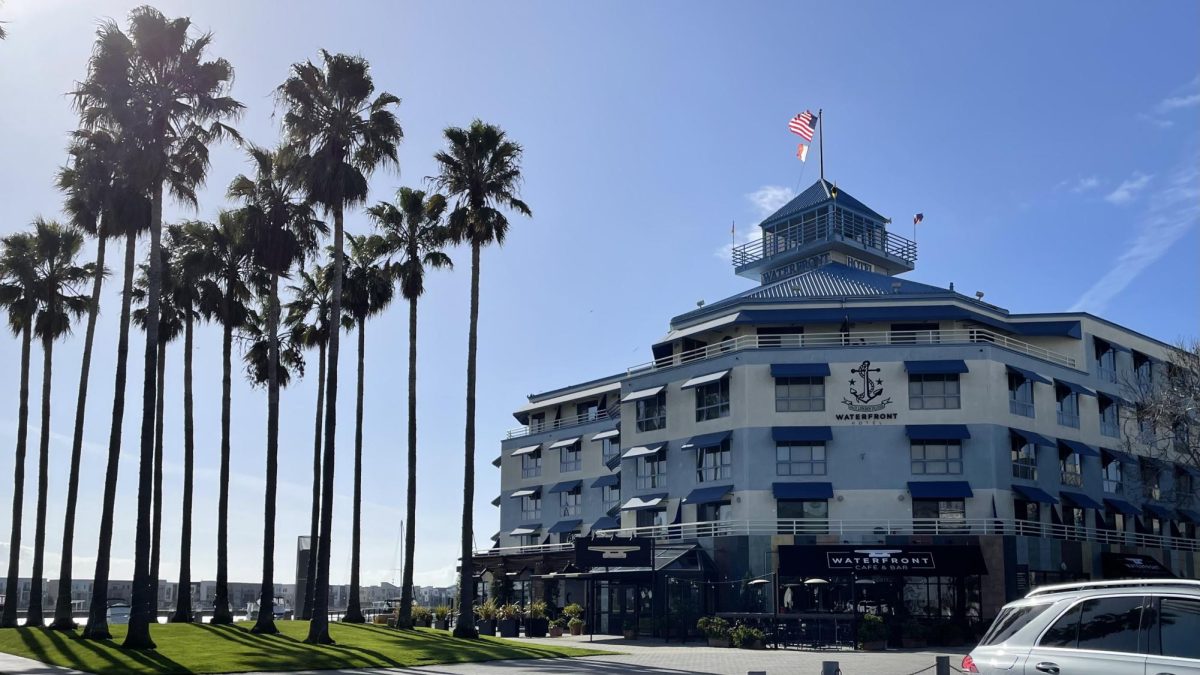
His name is missing from history books, and his ideas and philosophies are not commonly argued in class, despite his significant role as an orator for free speech and education reform.
Even 49 years later, Alexander Meiklejohn’s footprint is still present on CSU East Bay’s Hayward campus, formerly known as CSU Hayward.
On April 28, 1964 Meiklejohn gave his last speech at a CSUEB graduation before he died that December. Titling it “Freedom Under the Constitution,” he argued the need for an educated electorate in order to have full democracy. He challenged people to criticize their government and questioned the direction of education and civil freedoms.
CSUEB later named its liberal arts hall in honor of the philosopher and activist, whose pragmatic ideas were ahead of their time during the McCarthy Era and beyond.
“He really wasn’t in tune with his time,” said John Dixon, a friend and pupil to the late Joseph Tussman, whose work with UC Berkeley’s experimental college was influenced by Meiklejohn.
In his speech to the graduates of 1964, Meiklejohn uses Roger Williams, the first American freedom activist, as an example to the harsh realities before the creation of the U.S. Constitution, in which he held much faith, said Dixon. Williams’ story of being deported back to England because of his criticisms of the church’s rule during the 1600’s, exemplifies Meiklejohn’s argument of the importance of freedom for a nation.
“The formal charge against Williams was that he had divulged diverse views and dangerous opinions against the authority of the magistrates and had refused to retract them. The accusation was true. Williams himself, like Socrates, frankly admitted the facts alleged against him,” said Meiklejohn in his speech.
Even then, he claimed the public lacks the presence in government and that populous should be more educated.
“But the political thinking which we Americans have done since the Constitution was adopted has had not such energy, no such creative character,” Meiklejohn said in his convocation speech about Williams’s story.
Although Meiklejohn played a major role as an advocate to the First Amendment, he also believed in educational reform. With admiration for John Dewey, a philosopher and education reformist himself, Dixon says, Meiklejohn discerned his thoughts around his University of Wisconsin’s experimental college, according to Brown University Library website.
As the first in the nation, Meiklejohn’s experimental college adjusted the standards of learning, according to Brown University’s Library website. He eliminated formal exams, mandatory attendance and emphasized the importance of community, it stated. Meiklejohn believed schools should be fully democratic and that students should have freedom to education.
Meiklejohn, a former member on the National Committee of the ACLU, is better known for his “theory of expression” to which the philosopher connected to the “theory of democracy,” Dixon added.
Dixon describes the First Amendment activist as a socialist, despite never admitting his political party. He explains how Meiklejohn’s ideas around the “theory of expression” directly correlate with President James Madison’s federalist papers. Dixon refers to these as the fourth branch of government, the sovereign people.
Meiklejohn believed the sovereign people should use the government as a utensil to help govern the people, as opposed to using the government to regulate thier people.
His speech embodied his ideologies that he argued over the span of 92 years. Many colleges continue to be influenced by Meiklejohn, including, CSUEB, Brown University, Amherst College, University of Wisconsin and much more.
“He was one of the advocates of building communities of learners,” said Sally Murphy, Educational Office director. “That learning happens best in a community environment and not in a solo environment, and was an experimentalist in education.”
At CSUEB, Murphy explains how Meiklejohn’s presence is still eminent on itscampus.
“He was inspirational to our freshman learning community,” she said, adding the program connects other students and teachers together.
Brown University’s Meikljohn program mirrors CSU East Bay’s by connecting students with staff and other peers to manifest better relations and work ethics, said Jonathon Bateman, senior leader at Brown University’s Meiklejohn program.
Other experimental colleges were created following Meiklejohn’s lead. UC Davis, San Francisco University, and Tuffs University have all experimental colleges, which cater to the community of the school.













